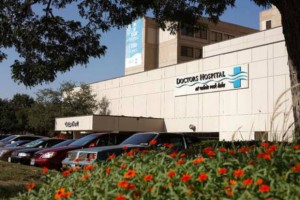

That's why the name “allopathic” (“cure by opposites”) was applied to these physicians.

The resulting vascular collapse counteracted the presumed capillary hypertension. The one remedy was depletion of the body fluids by bloodletting to the point of unconsciousness, and calomel (mercurous chloride) to empty the stomach and the bowels. He believed that all diseases were due to a morbid excitement induced by capillary tension. The “regular”-or predominant-doctors who practiced in the 19th century were followers of Benjamin Rush. Actually, the time frame to be discussed is from 1890 through 1920, and I will also say a few words about the removal of Baylor College of Medicine from Dallas to Houston in 1943. Today, I will try to describe what medicine was like in Dallas 100 years ago. F ordtran, MD: Thank you, Marvin, for that wonderful introduction and for your own interest in medical history and for the effort you have made to teach the history of medicine to our students, residents, and staff. It is a pleasure to introduce John Fordtran, sometime gastroenterologist, but really eminent medical historian! Ladies and gentlemen, the evidence is overwhelming. He chose to speak on the life and career of Samuel James Meltzer, founder and first president of that august organization, which was established in 1907. Twenty-one years ago, almost to the day, John delivered the presidential address at the annual meeting of the American Society for Clinical Investigation, another occasion when he could have spoken on any topic he wished. Why? Not just because of the topic chosen for his AOA lecture, which you will hear this morning. During the past year, he was elected to fellowship in the Royal College of Physicians of London.ĭespite these considerable accomplishments and worldwide recognition, I submit that John Fordtran's principal interest is medical history. I shan't dwell on some of his other activities, such as being acknowledged as one of the leading investigators and educators in gastroenterology, or being one of the 2 founding editors of the best textbook on gastroenterology, or being awarded virtually every prize given in the field as well as several honorary degrees. Most of us know John as the chief of medicine at Baylor for 17 years and current president of the Baylor Research Institute. It was arrived at after much contemplation. Now, do not think that the subject he selected was accidental.

We are fortunate that he has agreed to give this talk again at Baylor this morning. John chose to speak about medicine in Dallas 100 years ago at the AOA banquet. In addition, some of the newly elected medical students will be joining our housestaff in July.įor a long time I've thought it interesting to observe the subjects selected by esteemed colleagues when they have the widest possible latitude, that is, the topic of their choice. Many members of our own medical staff are members of AOA. For those of you who may not know, AOA is the national honor medical society to which top medical students are elected in recognition of superior scholarship. John Fordtran delivered the Alpha Omega Alpha lecture at Southwestern Medical School.


 0 kommentar(er)
0 kommentar(er)
